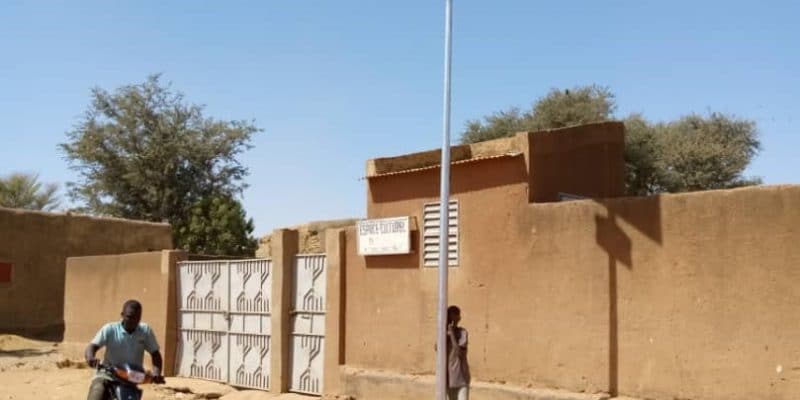Work on the Trezor program (Tranquillity in rural areas through public and solar lighting) is beginning, one year after its official launch by the Departmental Council of Ille-et-Vilaine (France) and the authorities of the Mopti region in Mali. It aims to install 200 solar-powered street lamps in Mopti to improve public lighting. The solar-powered equipment will be supplied by the French company Fonroche Éclairage.
Improving public lighting in the Mopti region. This is the goal of the Trezor program (Tranquillity in Rural Areas by Public and Solar Lighting), launched in 2019 by the Ille-et-Vilaine Departmental Council (France) and the authorities of the Mopti region, partners for 35 years. Trezor aims to install 200 solar-powered street lights in the Mopti region in central Mali.
The solar-powered street lamps will be supplied by the French company Fonroche Éclairage, which specializes in public lighting and the production of renewable energy. The Fonroche Group subsidiary was chosen in an international call for tenders. According to the specifications of the Trezor program, the solar street lamps will have to be able to operate 365 nights a year in a hot and dusty climate. Authorities in the Mopti region estimate that Mali enjoys sunshine 300 days a year, making this West African country an ideal location for this type of sustainable solution.
The street lamps will be distributed along the main roads and in the busy areas of Mopti. “They will bring comfort and tranquillity to at least 40,000 people, help socio-economic development and limit violence,” says Fonroche Éclairage. The installation of the solar street lamps will be carried out by local authority staff, previously trained by Fonroche Éclairage. The French company explains that the team initially chosen to install its solar street lamps was chosen in France because of travel restrictions related to Covid-19. Fonroche Éclairage also indicates that the preventive and curative maintenance of the solar street lamps will be carried out by its “Malian partner” before their installation.
Inès Magoum







